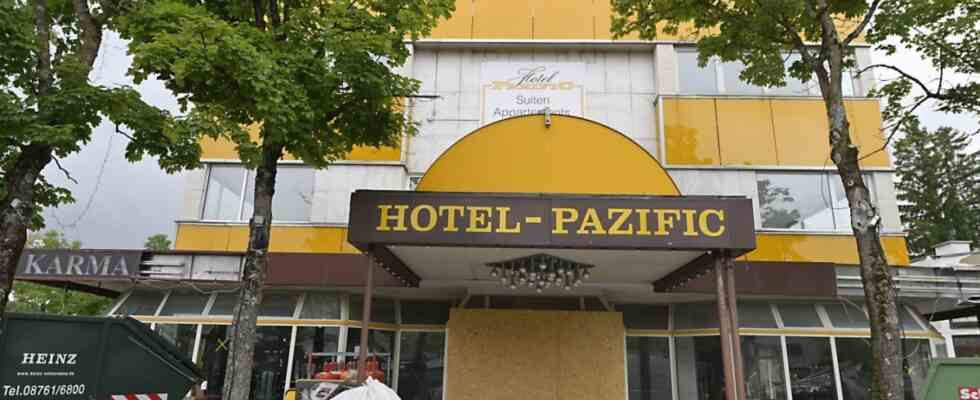A wave of solidarity with Ukraine is sweeping over the district of Munich and especially with the people who are fleeing the war there. At the same time, the district and the municipalities are preparing to take in these very people seeking protection. In Ottobrunn, the former Hotel Pazific on Rosenheimer Landstrasse, which is to be converted into living space in the long term, may soon offer refugees from the Ukraine a roof over their heads. As Mayor Thomas Loderer (CSU) told the SZ, the district office informed him that the owner of the hotel had offered the building to the authority for the temporary accommodation of refugees. “Of course I also support that,” says Loderer. From the district office it can be learned that the district is “intensively preparing for the reception and accommodation of refugees from Ukraine”. The government has been notified of free and available capacities. However, it is assumed that the available capacities will be far from sufficient.
Meanwhile, in Neubiberg, too, there are concrete ideas about how to help refugees from the Ukraine. According to Mayor Thomas Pardeller (CSU), the municipality has already reported three free apartments in the municipal senior center to the district office. “People would have someone to talk to there,” says the mayor. The municipality also named another municipal building to the district office, but it was not in particularly good condition. The air dome can also be activated again, as after the large influx of refugees in 2015, if the district office so wishes, says Pardeller. In addition, the administration examines municipal properties in order to make them available if necessary.
In Gräfelfing, too, consideration is being given to where those seeking protection from the Ukraine could be housed. The refugee accommodation in Großhaderner Straße in Gräfelfing is largely occupied, says town hall chief Peter Köstler (CSU). It is also not suitable for women and children in large numbers. In view of the corona pandemic, Köstler sees using gymnasiums as accommodation, as was the case in 2015 when many Syrian and Afghan refugees came to the Würm Valley, as “highly problematic”. In the Planegger town hall, contact has already been made with the volunteer fire brigade, which has emergency plans from 2015, in order to find out which accommodations could be provided at short notice.
The search for housing is also a big topic in Planegg – triggered by the call from the district administrator to accommodate people in need privately. While no citizens have yet contacted the Planegg town hall with specific housing offers, Renate Hausdorf from the helpers’ group in Gräfelfing has received a number of calls. Her goal is to secure space for 20 people from Ukraine next week, who the Caritas helper from Ukraine could bring with him on one of his transports. According to Hausdorf, it is important that the admission of the refugees is coordinated with the coordination center in the district. She agreed that with the Mayor of Gräfelfingen, Köstler. “We have to act in a coordinated manner,” warned the head of the town hall. When people from the Ukraine arrive here, it must first be determined where they live. The district administrator’s call raised many questions, as Friederike Rother from the Asylum Helpers Association found out. In particular, the duration of the stay is unclear. “It makes a difference whether you take people in for four weeks, several months or years.” The circle of helpers sees itself as the central point for the ongoing aid initiatives. “We forward information and provide addresses and contacts,” says Rother.

